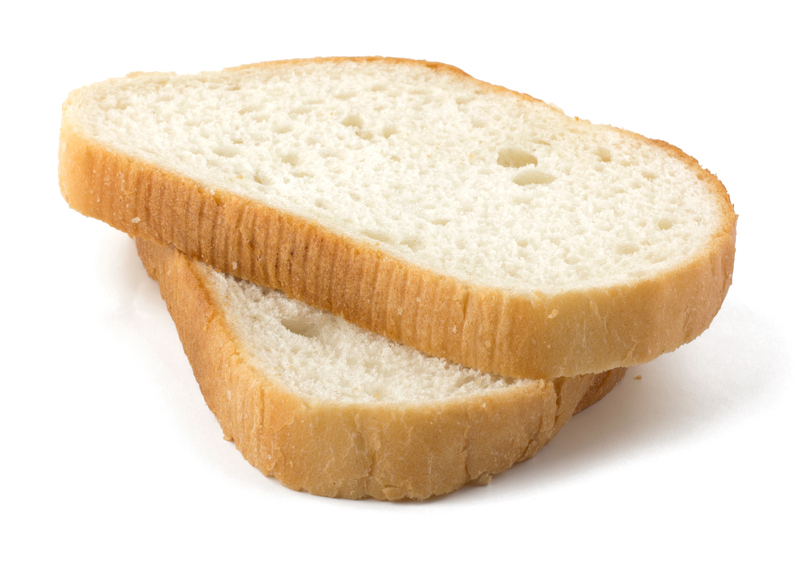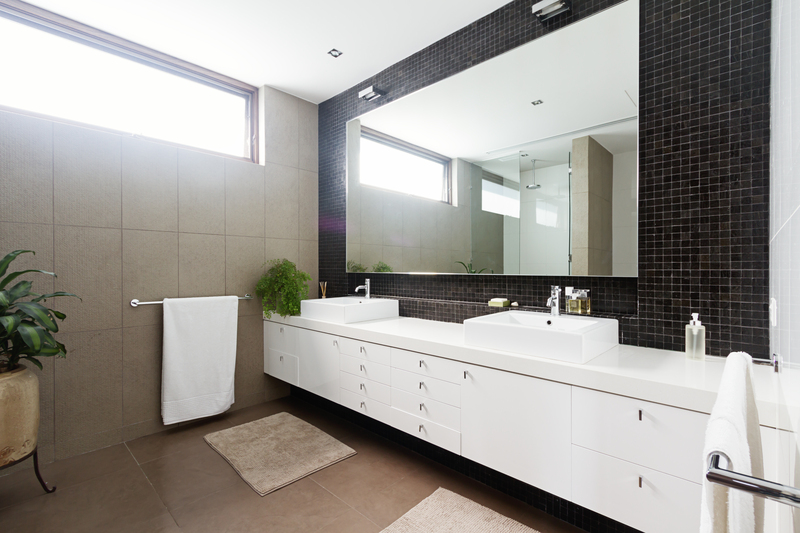Eliminate Pet Odors and Freshen Up Your Living Space
Posted on 26/06/2025
Eliminate Pet Odors and Freshen Up Your Living Space: The Comprehensive Guide
Sharing your home with a pet brings undeniable joy--unconditional love, companionship, and play. However, every pet owner confronts the challenge of pet odors. Even the most beloved cat, dog, or exotic critter can leave behind lingering smells that make your home less inviting. If you're seeking solutions on how to eliminate pet odors and freshen up your living space, this in-depth guide is for you.

Understanding the Source of Pet Odors
Before you can effectively neutralize pet smells, it's crucial to understand where they come from:
- Pet urine and feces accidents are among the most pungent and persistent sources.
- Pet dander and fur accumulate in carpets, furniture, and air vents.
- Unwashed pet beds, toys, and other belongings absorb and harbor odors.
- Pet saliva can coat floors, furniture, and even walls.
- Dirty litter boxes or cages consistently emit unpleasant smells.
Addressing these sources head-on is the first step toward a fresher and more welcoming home.
Daily Habits to Prevent Pet Odors
1. Clean Up Accidents Immediately
Speed is your ally. When a pet has an accident, blot up liquids quickly using paper towels. For solid messes, scoop and remove waste promptly. Use an enzymatic cleaner designed specifically for pet stains to break down odor-causing molecules instead of just masking them. This inhibits pets from marking the same spot repeatedly.
2. Regular Pet Grooming
To eliminate pet odors at the source, maintain a proper grooming schedule:
- Bathe dogs every 4-6 weeks, or more frequently for breeds prone to odors.
- Brush all pets (including cats and rabbits) regularly to minimize dander and stray fur.
- Wipe paws after walks to prevent dirt from accumulating indoors.
Tip: Use hypoallergenic or deodorizing shampoos recommended by veterinarians for best results.
3. Clean Pet Belongings Weekly
Pet beds, blankets, and toys easily trap odors. Wash these items in hot water at least once a week. If possible, opt for machine-washable materials.
4. Commit to Litter Box and Cage Hygiene
For cats and small mammals, scoop litter boxes daily and perform a deep clean weekly using a mild soap and warm water. Replace all litter and disinfect cages regularly.
Deep-Cleaning Strategies for Odor-Free Living
Vacuuming: The First Line of Defense
Carpets, rugs, upholstery, and pet lounges are major magnets for pet smells. Invest in a vacuum with a HEPA filter which effectively traps dander and fine particles. Aim to vacuum high-traffic areas and pet zones at least three times a week. Don't neglect under furniture and behind appliances, where fur and dander settle unnoticed.
Steam Cleaning and Shampooing
For deep-seated pet aromas, steam cleaning is highly effective. Hot steam breaks up and lifts grime, stains, and pet residues embedded in carpet fibers and upholstery. Use a non-toxic, pet-safe carpet shampoo for additional deodorizing power.
Launder Everything Washable
- Remove slipcovers, pillowcases, curtains, and washable rugs.
- Use an enzyme-based detergent that tackles pet stains and odors.
- Dry thoroughly to prevent mildew and further odors.
Hard Floors and Surfaces
Mop tile, laminate, and hardwood floors regularly with a pet-friendly cleaner. Avoid products containing ammonia, as these can mimic the smell of urine and encourage repeat accidents.
HVAC and Air Duct Maintenance
Pet dander can accumulate in heating and cooling vents, cycling musty smells throughout your home. Replace or wash HVAC filters monthly, and schedule professional duct cleaning every year or two if you have heavy-shedding pets. This step can dramatically improve indoor air quality.
Natural and Commercial Solutions to Eliminate Pet Odors
Baking Soda: A Pet Odor Neutralizer
Baking soda is a time-tested remedy. Sprinkle it liberally onto carpets and let it sit overnight to absorb odors. Vacuum thoroughly the next day. For stubborn smells in shoes or litter boxes, a small dish of baking soda placed nearby can continually absorb offending odors.
Vinegar Solutions for Odor Elimination
Mix equal parts distilled white vinegar and water in a spray bottle. This solution neutralizes pet urine and general odors on most washable surfaces. Always spot-test first to avoid discoloring delicate fabrics or finishes.
Enzyme Cleaners: The Heavyweight Champions
Unlike standard cleaning products, enzyme cleaners break down urine, feces, saliva, and vomit at the molecular level. These cleaners are essential for eliminating persistent pet odors and are effective on carpets, upholstery, and even outdoor surfaces.
Activated Charcoal and Air Purifiers
- Activated charcoal sachets can be placed in closets, shoes, and pet areas to absorb lingering odors.
- A quality air purifier with a HEPA filter removes airborne allergens and dander, helping to freshen your living space continuously.
Essential Oils: Proceed with Caution
While some essential oils (like lavender or eucalyptus) have deodorizing properties, many essential oils are toxic to pets. If you choose to diffuse oils, ensure your pet cannot access the diffuser or residue and select only pet-safe oils in well-ventilated spaces.
Freshening Techniques Beyond Cleaning
Maximize Ventilation
Nothing beats fresh air. Open windows daily to let musty air escape and replace it with a clean breeze. Place fans strategically to direct airflow through your home, further banishing stagnant odors.
Deodorize Soft Furnishings and Mattresses
Spritz fabric-safe, pet-friendly deodorizers on couches, curtains, and mattresses. For a DIY solution, combine water, a little vodka, and a few drops of pet-safe essential oil in a spray bottle. Lightly mist fabrics and let them air dry.
Houseplants: The Natural Air Filters
Plants can help purify the air by absorbing toxins and neutralizing odors. Consider pet-safe options like spider plants, Boston ferns, or bamboo palms to enhance your environment naturally.
Tips for Odor-Free Pet Spaces
Kennels and Crates
Wipe down the inside of your pet's crate or carrier weekly with a mild soap solution, then rinse and dry thoroughly. Line with machine-washable bedding and avoid letting messes sit for long periods.
Litter Box Management
- Choose clumping, odor-control litters. Consider natural options such as recycled paper or pine pellets for sensitive noses.
- Replace the entire litter regularly and clean the box with unscented soap to prevent perfumed mixes that may irritate pets or humans.
Aquariums and Small Animal Cages
- Remove and replace bedding every week (or as recommended for the species).
- Scrub food bowls, water bottles, and cage surfaces with hot water and gentle detergent.
Pet-Friendly Cleaning Routine
Create a weekly chore list to stay ahead of odors. Assign tasks such as:
- Washing pet bedding and linens
- Vacuuming and mopping floors
- Cleaning toys and food bowls
- Emptying and cleaning litter boxes or cages
Consistency is key to keeping airborne and surface odors at bay.
Choosing Pet-Safe Deodorizers and Cleaning Products
Pets are more sensitive to chemicals than humans, so it's vital to:
- Read labels and avoid products with ammonia, bleach, phenols, or artificial fragrances.
- Look for certified pet-safe or non-toxic products.
- Test a small area before wide application to watch for reactions.
When in doubt, stick to natural solutions like baking soda, vinegar, or products approved by veterinary toxicologists.
Addressing Persistent or Severe Pet Odors
When to Seek Professional Help
- If odors return after thorough cleaning, damaged floors or subflooring may need to be replaced.
- Some severe cases, such as extensive urine damage, benefit from professional odor removal services utilizing ozone treatments or industrial-grade enzymatic cleaners.
Preventing Repeat Offenses
Pets may return to the same spot if odors linger. After using enzyme cleaners, block access with furniture or training aids while retraining your pet. Positive reinforcement techniques help redirect your pet's behavior to appropriate locations.
Quick Checklist: How to Eliminate Pet Odors and Keep Your Home Fresh
- Act fast to clean accidents with enzyme-based cleaners.
- Vacuum and mop at least weekly (or more for multiple pets).
- Air out your home daily and use air purifiers where possible.
- Maintain strict hygiene for all pet belongings.
- Bathe and groom pets regularly.
- Use natural odor absorbers like baking soda and activated charcoal.
- Deep clean carpets, upholstery, and air ducts as needed.
- Keep up with litter box, cage, and kennel cleanliness.
- Choose cleaning and deodorizing products safe for pets.

Frequently Asked Questions on Pet Odor Removal
How do I get rid of dog smell in my house fast?
Spot clean any messes immediately, vacuum and mop high-traffic areas, and open windows for ventilation. Use baking soda on carpets and an air purifier for quick relief.
What is the best cleaner to remove cat urine odor?
Enzymatic cleaners are effective at breaking down uric acid crystals found in cat urine, eliminating the smell at its source.
How can I keep my house smelling fresh with pets?
Adopt a regular cleaning regime, use odor-neutralizing products, incorporate air-purifying plants, and prioritize good ventilation every day.
Conclusion: Savor a Clean, Odor-Free Home with Your Pets
Caring for pets needn't conflict with enjoying a fresh, welcoming home. By understanding the roots of pet odors, acting quickly, and making prevention part of your lifestyle, you'll be able to eliminate pet odors effectively and keep your living space clean and inviting. With the right tools and a bit of diligence, you--and your guests--can enjoy all the love pets offer without any of the lingering smells. For the ultimate in comfort, embrace these habits and let your home truly reflect the joy your pets bring to your life--odor-free!




